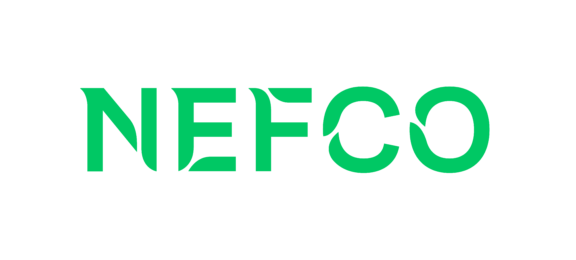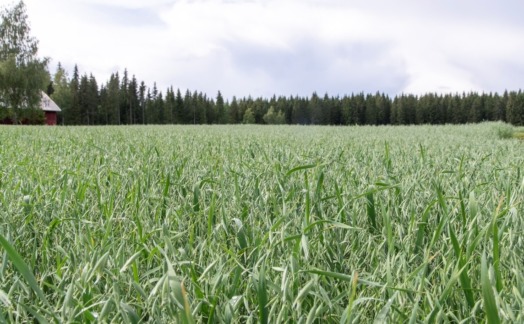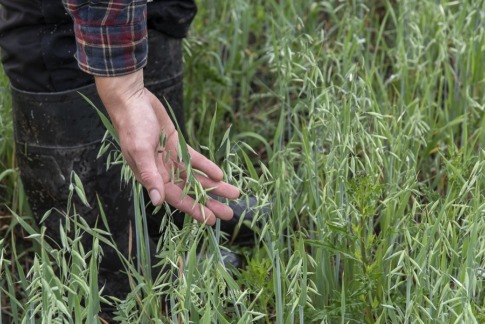MILD
Responsible Shipping
More Information, Less Discharges to the Baltic Sea
Awareness and implementation of No Special Fee -recommendation are crucial when encouraging ships to discharge ship-generated waste into ports, not into the Baltic Sea. In this project, BSAG scaled the approach of “Baltic Sea Waste Fee Info” to other Baltic Sea countries.
Official name
More Information, Less Discharges to the Baltic Sea (MILD)
Duration
May 2021 – April 2022
Persons in charge
Daniel Jespars, project coordinator
Consortium
Baltic Sea Action Group
Funder
Nordic Environment Finance Corporation (NEFCO), BSAP Fund
Seafarers, shipping companies and ports need more awareness of responsible shipping
Every day, there are over 2000 ships sailing in the Baltic Sea. Over 90 per cent of ships carry cargo, and less than 10 per cent are passenger or cruise ships. Onboard cargo ships there are about 25000 crew members whose grey waters, sewage and food waste can be legally discharged into the Baltic Sea. Discharges contain nutrients, bacteria, chemicals and microplastics – all detrimental to the Baltic Sea.
BSAG arranged a survey of cargo ships calling in Finnish ports in 2020. Survey covered 12 busiest cargo ports in Finland. The main results of the survey were surprising:
- two thirds of cargo ships reported they discharged grey waters, treated black waters or food waste into the sea
- almost one third of the ships reported they were not aware of No Special Fee – system, a HELCOM incentive encouraging ships to leave all waste at ports.
In order to minimize discharges into the sea and to encourage ships to discharge waste at ports, BSAG together with the Finnish maritime cluster organized an information campaign. The outcome “Baltic Sea Waste Fee Info” is a concise information package, listing present regulations and principles of No Special Fee.
In May 2021 BSAG launched a project, aiming at increasing awareness among seafarers, shipping companies and ports. The project, funded by the Nordic Environment Finance Corporation, ended in April 2022.
The targets of the project are listed below:
- scale the approach of “Baltic Sea Waste Fee Info” to Baltic Sea countries
- collect data on ports’ pricing principles and waste management procedures
- support regulatory work at HELCOM and at national level.
HELCOM recommendation of No Special Fee is not implemented at Baltic Sea ports
At the beginning of the project, BSAG collected data of Baltic Sea ports on the present status of waste management. Data on pricing principles and waste management policies was gathered from major ports in all Baltic Sea countries. The study covered 30 ports in 8 countries, plus 18 Finnish ports. Ports were approached with a request to provide disbursement accounts for six vessel types, typical in the Baltic Sea trade. Each vessel was supposed to discharge certain waste types at the port, typical for said vessel type.
The ports are free to set their tariffs, and waste fees can be set in various ways. Waste fees vary considerably not only between countries but between ports in the same country. For same services the waste fee can be three-four times higher in one port compared to another port in the same country.
HELCOM recommends all Baltic Sea ports to apply the No Special Fee – system, meaning that port charge from ships a waste fee which ships pay irrespective if they leave any waste at ports or not. Under No Special Fee -system the compulsory waste fee must cover waste types under MARPOL Annex I (oily waste from machinery spaces, Annex IV (sewage), and Annex V (garbage).
When examining the data collected from 30 ports outside Finland, it was evident that a considerable number of ports do not follow HELCOM recommendation of No Special Fee. Several systematic discrepancies were observed. Waste management policies and waste fee principles are diverse and inconsistent. The purpose of No Special Fee is to encourage ships to discharge waste at ports, but the incentive does not have the intended effect.
Based on BSAG findings under MILD project, it is easy to understand that ships’ crews and shipping companies must be puzzled about the inconsistent waste fees and waste management principles around the Baltic Sea. If ships cannot be sure of the waste fees at their next port, they are tempted to discharge for example sewage, grey waters and food waste into the sea instead of bringing it to the port.
The starting point of MILD project was to spread awareness of No Special Fee among seafarers and shipping companies. The intended tool was “Baltic Sea Waste Fee Info”, the concise information package created by BSAG in cooperation with the Finnish maritime cluster. The information package is already in use in Finland, delivered to cargo ships heading to Finnish ports or sailing in Finnish territorial waters.
During the project, the focus had to be changed slightly. It was not the ships but the ports which had to be made aware of No Special Fee recommendation, which is implemented poorly around the Baltic Sea. Therefore, BSAG contacted altogether 62 ports, 30 shipbrokers and several authorities in 9 Baltic Sea countries. Ports were encouraged to amend their pricing principles to be in line with HELCOM recommendation and spread information to cargo ships. Agents were requested to use “Baltic Sea Waste Fee Info” as a tool in communication with ships and shipping companies. Further support was sought at national and regional authorities.
Concrete actions are needed from all stakeholders
MILD project stated that HELCOM recommendation of No Special Fee is not widely known, or even when known, it is not implemented, or when implemented, it is implemented incorrectly. The reasons for this should require further elaboration. It is obvious that the well-intended recommendation has not gained the effect HELCOM contracting parties hoped for.
The findings of MILD project call for action from various parties. Below is a list of main actions required:
- HELCOM must take actions towards member states: communicate the importance of No Special Fee system; emphasize that the cost of reception, handling and disposal of ship-generated wastes, must be included in the harbour fee or otherwise charged to the ship irrespective of whether wastes are delivered or not; demand that the waste management fee imposed on a ship should be independent of the volume of the wastes delivered to the port reception facilities (Annex I, IV, V)
- National authorities must ascertain that ports are aware of No Special Fee system, and implement it as recommended by HELCOM; emphasize the importance of fair, transparent and non-discriminatory pricing principle; remind that the waste management fee imposed on a ship should be independent of the volume of the wastes discharged to the port; encourage ports to insentivize sustainable waste management onboard ships; require ports to report waste management pricing schemes and volumes discharged at ports.
- Ports must review pricing principles and align them with HELCOM recommendation; introduce incentives to reflect responsible management, processing and minimization of waste onboard the ships; improve port reception facilities to meet requirements from ships; introduce Baltic Sea Waste Fee Info and include it in port’s web pages; advise shipbrokers to deliver Baltic Sea Waste Info to ships heading to the port.
- Interest groups (port organizations, shipbrokers, shipowners, other stakeholders) must inform ports, shipbrokers, shipping companies, and other stakeholders about No Special Fee system; encourage ports to improve their reception facilities and amend their pricing schemes; encourage ships and shipping companies to require waste management services at ports according to HELCOM recommendation; take voluntary actions to improve responsible waste management onboard and ashore by enhancing communication and information flow between parties; report to GISIS database of any discrepancies regarding port reception facilities.
project partners




